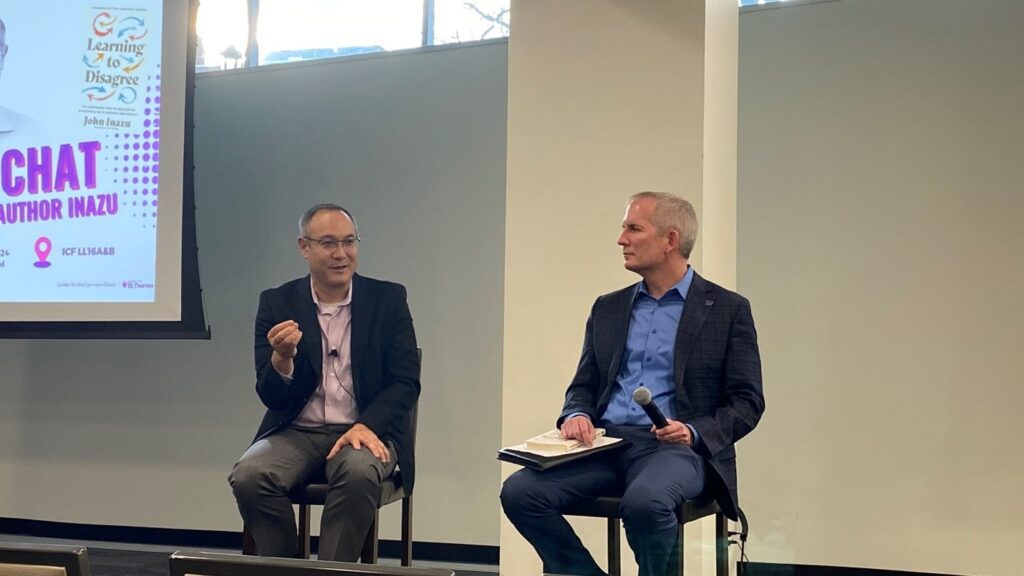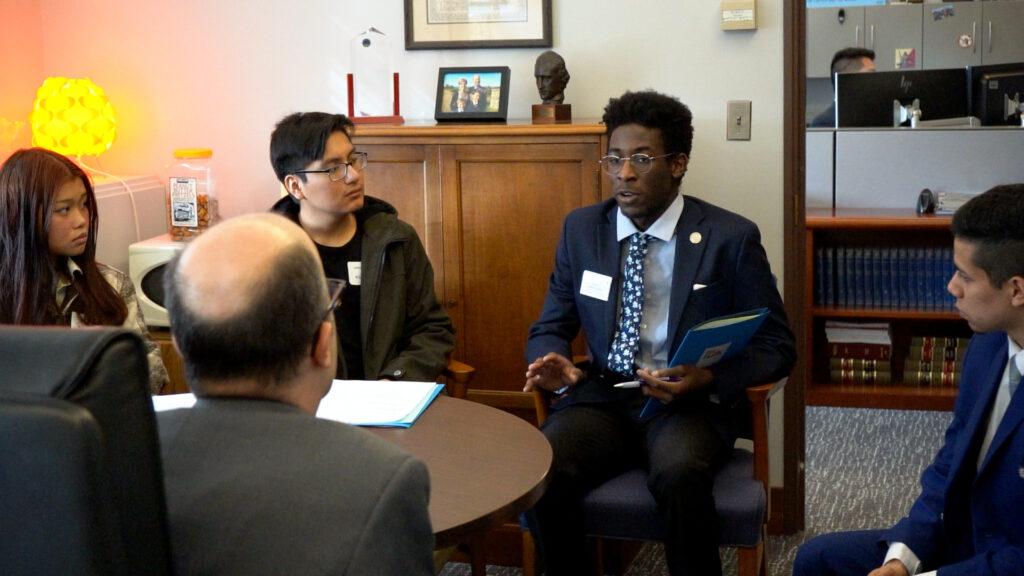Two St. Thomas student leaders, Skye Schultz and Maggie Sutton, recently visited the United Nations headquarters in New York City to attend a conference on global issues. The two, who are interns, traveled for their work with the Global Justice Movement through Catholic Relief Services (CRS) at the Center for the Common Good. CRS, who organized the conference, is the official international Catholic agency of the U.S. and does work in over 100 countries. Some of the main issues CRS focuses on are the refugee crisis, global hunger, climate change, public health crises and emergency responses.
“Part of CRS’ organization is chapters at universities around the U.S., including St. Thomas,” Schultz said. "At St. Thomas, the chapter goes by the name Global Justice Movement, which has a goal to help improve well-being across the world by advocating for policies that do things like provide international humanitarian food aid and educational resources for children.”
The CRS conference that Schultz and Sutton attended at the U.N. was co-hosted by Fordham University and Caritas International.
“One aspect of the conference that stood out was the unveiling of the 2022 Fordham Francis Poverty Index score for 2022, which measures what percentage of the world they see as being in poverty,” Sutton said. “However, they have a unique way of measuring poverty. Many people and organizations would define poverty just by a lack of access to food, water, and shelter. The Fordham Francis Index, on the other hand, raises the bar and asserts that people should also have access to employment, education, gender equity, and religious freedom.”
After explaining these different measurements, the Fordham Francis Index researchers revealed that the 2022 score was 26, meaning that more than one quarter of the global population is in poverty. This result differs from recent trends that show global poverty is getting less common. Instead, this year global poverty actually increased.
The recent increase in global poverty can be attributed to what is being called the three C’s: COVID, conflict and climate.
- COVID-19 has hit developing parts of the world harder than the rest due to the lack of existing health care infrastructure, hurting local economies and leaving people in a worse position than they were before the pandemic.
- Conflict refers to local, state and regional disputes that affect the quality of life in the areas affected. Speaker William O’Keefe, the executive vice president of CRS, brought up conflicts caused by old farming practices conflicting with pastoral herders, causing food shortages in western sub-Saharan Africa. CRS was able to enter these communities and provide education about newer forms of water irrigation and farming practices, so that there is enough water and food in the area leading to a decrease in conflict.
- Lastly, the change in climate has caused areas dependent on specific forms of farming or seasonal weather to allow for agriculture to become unstable, as weather in these places has become unpredictable like it used to be, and farming practices used by generations are no longer producing food. The areas most at risk from these changes in climate are sub-Saharan Africa and Southeast Asia, as these areas are dependent on cyclical rains that no longer occur.
“The main focus of the conference was to bring together chapters of CRS under the belief that there is a responsibility for Catholics to aid and provide for those who are in need, no matter how far away those people may be,” Schultz said. “CRS focuses on creating education programs to give people the base to create their own success rather than giving cash and leaving these areas.”
CRS also employs local community members to run their programs rather than bringing in foreign actors, allowing for closer community engagement and strengthening local economies.
The Global Justice Movement through CRS group at St. Thomas will have a table in Anderson Student Center on Dec. 6, 8 and 13. All Tommies are invited to fill out an advocacy form to support the Global Food Security Reauthorization Act and learn more.







